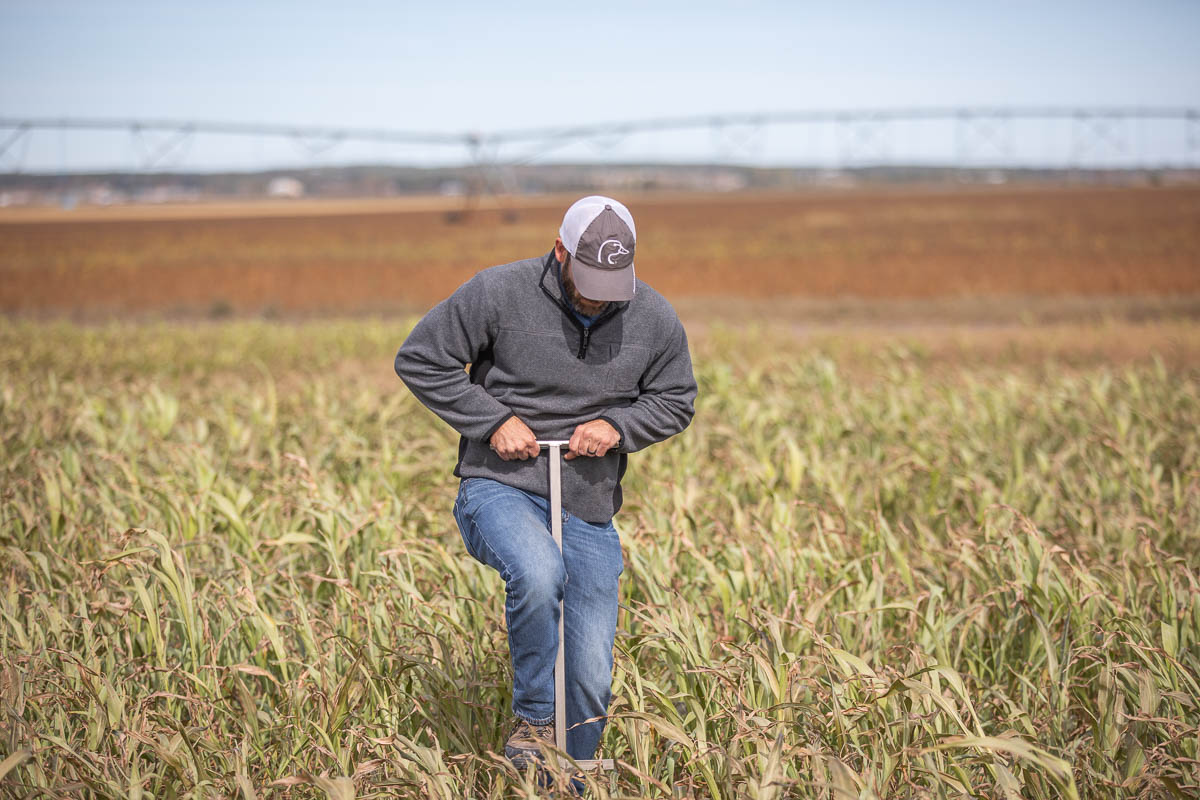USDA’s $35 Million Conservation Grant Will Impact 240,000 Acres
DU will lead the delivery of this landmark funding that incentivizes producers to participate in sustainable ag practices
DU will lead the delivery of this landmark funding that incentivizes producers to participate in sustainable ag practices

In Sept. 2022, U.S. Department of Agriculture (USDA) Secretary Tom Vilsack announced $20 million in funding to advance U.S. Pork Sustainability through the Partnership for Climate-Smart Commodities program. Since then, an additional $15 million has been secured for pork farmers in Iowa, Minnesota and Missouri interested in adopting management practices that improve soil conditions, limit nutrient run-off and reduce greenhouse gas emissions.
Ducks Unlimited (DU) is partnering with the USDA, National Pork Board (NPB), Nestrade (Nestlé), and a host of other organizations to help administer the funding and work with producers to deliver on-site technical support. The project is expected to impact 240,000 acres across the three states.
“There are several agricultural practices we will be incentivizing through this partnership,” said Billy Gascoigne, Director of Agriculture and Strategic Partnerships for DU. “Our technicians can assist producers with planting cover crops, no-till seed planting, livestock integration, grass buffers, and wetland buffers.”
This suite of agricultural services ensures that fewer sediments and nutrients leave the field and enter waterways used by waterfowl, other wildlife and people. Planting fall cover crops after harvest maintains soil health throughout the winter and provides an additional source of forage for livestock. Because of this added food source, the result is improved management of native grasslands, which waterfowl use for nesting cover.
No-till planting practices help with carbon sequestration. When ag fields are disced to prepare for spring planting, the carbon in the soil escapes. This has been linked to increased greenhouse gases entering the atmosphere. Grass buffers act as a filter, slowing the flow of runoff and capturing sediment and nutrients before they enter streams and rivers.
“These sustainable ag practices not only improve the overall health of our environment, but they also provide cost savings to farmers,” said Mark Flaspohler, DU Director of Agriculture Programs for the Great Lakes Region. “Waterfowl and other wildlife will benefit from these on-farm changes as well because of the positive effect it will have on water quality and native habitats.”
DU will serve as the link between producers and program funding, providing technical assistance for farmers, working directly with producers on the ground in Iowa, Minnesota, and Missouri to implement and deliver climate-smart practices.
“In May, this grant was part of the discussion at the United Nations G7 Summit in Japan,” Gascoigne said. “The interest in the grant at that level is an indicator of its unique approach and opportunity to make an impact. The DU name and brand is reaching parts of the world that it never has before, and it’s due to our investment in sustainable agriculture and the partnerships we have forged with NPB, USDA, and many others.”
This project exemplifies the potential for commodity groups, private industry, and conservation organizations to work towards common goals and offer data-driven solutions to farmers seeking to continuously improve their operations and receive financial credit for those efforts.
Producers interested in the program must complete a Pork Cares Farm Impact Report. For more information on the grant, and climate-smart practices, click here.
Ducks Unlimited uses cookies to enhance your browsing experience, optimize site functionality, analyze traffic, and deliver personalized advertising through third parties. By continuing to use this site, you agree to our use of cookies. View Privacy Policy